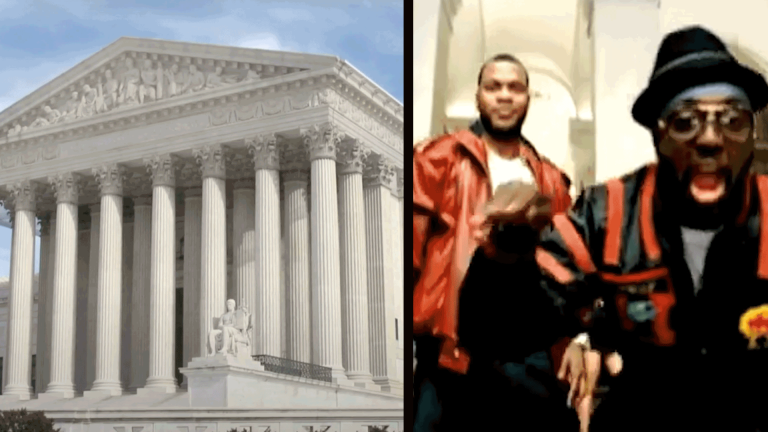Freestyle, a music group that found success with their song ‘Don’t Stop The Rock,’ is now taking legal action. Why? Well, the group allegedly hasn’t seen a dime from the “multi-millions of dollars” generated by way of their smash hit.
Instead, the group alleges a major record company is cashing in on their songs. Additionally, the group accuses the company of allowing major artists to sample them without their consent.
Now, The Shade Room’s Justin Carter is sitting down with the group on ‘TSR Investigates‘ as they take their case to the Supreme Court.
Here’s What Prompted The Legal Battle
According to Carter, Garfield Baker and his group Freestyle lit up the airwaves, “pumping out hit after hit” in the mid-80s. The group was reportedly signed to Music Specialist Inc., led by a man named Sherman Nealy.
“It took off to the point where we were selling more records than we could actually manufacture at the time,” Baker told Carter.
However, the group soon found themselves “on pause” after Nealy was hit with a drug charge. The CEO was sentenced to 20 years in prison and released in 2015.
However, just years before, in 2008, Flo Rida released his hit song, “In The Ayer.”
Baker couldn’t help but notice that the single sounded similar to the 1984 single, ‘Jam The Box,’ which was released by his labelmate Pretty Tony. Additionally, around the same time, Baker noticed that Freestyle’s hit song, ‘Don’t Stop The Rock,’ was being used in commercials and movies.
“Wait a minute — that’s my song. I should be getting some money. Why is nobody calling me about a check? How did this happen?” Baker explained, recalling his initial reaction to Carter.
Here’s How Freestyle Music Group Has Reacted
Before serving his time, Nealy ensured that the songs released under his label were registered at the copyright office and licensed. Due to the possible infringement, Nealy and the group decided to take legal action.
In 2018, the CEO sued a series of record labels and a publishing group. This was reportedly for the copyrights “for 14 songs” co-authored by the group between 1984 and 1987. However, six years later, the legal battle remains ongoing.
Scroll above to watch as the group explains why and shares how the matter can affect creators at large.


